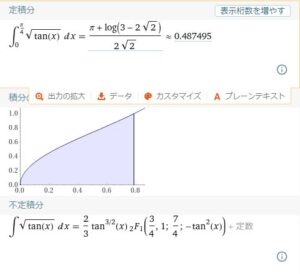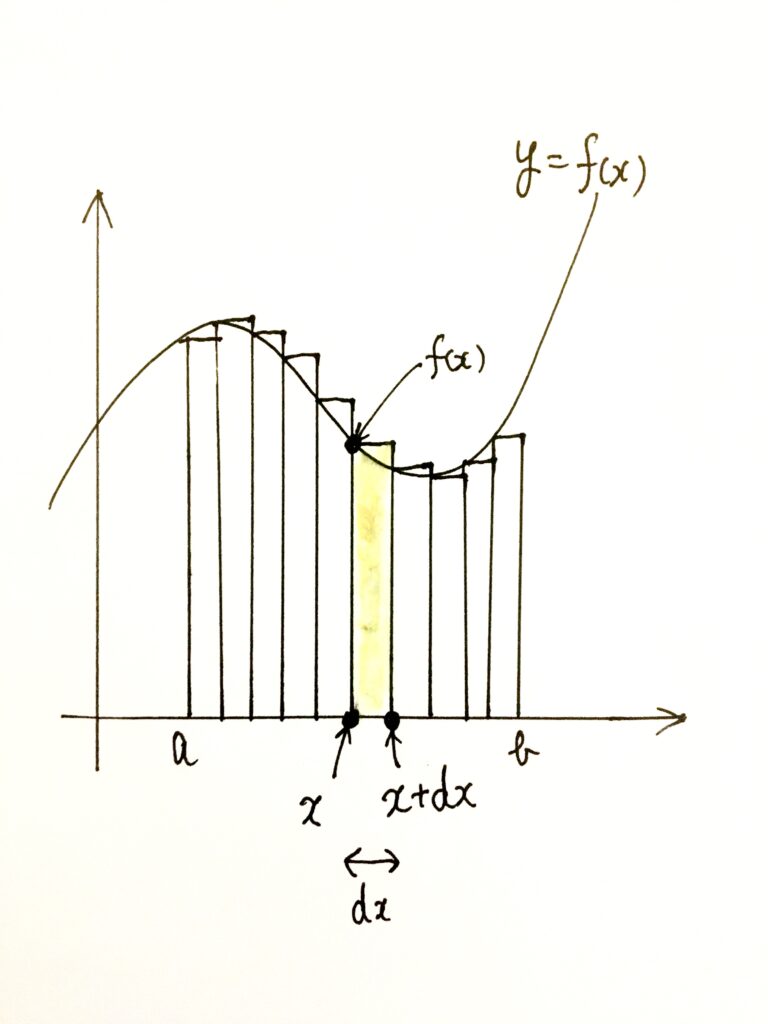[msg#wsiki]
問題
関数
\(\displaystyle f(x)=3( \sin x – \cos x) + \cos{2x}\)
の最大値を求めよ。
解答(解き方)
\(\sin x と \cos x\)の対称式ではありませんが、すこし工夫すると対称式の問題として考えることができます。
その工夫とは、2乗することです。
公式
\(\cos {2x} = \cos^2 x – \sin^2 x\)
\(t=\sin x + \cos x\)のとき、
\( 2 \cos x \sin x = (\sin x + \cos x)^2 -1=t^2-1\)
\((\cos x-\sin x)^2 = 1-2\cos x \sin x=2-t^2 \)
\(\displaystyle f(x)=3( \sin x – \cos x) + \cos^2 x – \sin^2 x\)
\(\displaystyle =( \sin x – \cos x)(3-( \cos x + \sin x))\)
\(t= \sin x + \cos x\)とおくと
\(\displaystyle (f(x))^2=( \sin x – \cos x)^2(3-t)^2\)
\(\displaystyle =(2-t^2)(3-t)^2\)
したがって、
\(\displaystyle g(t)=(2-t^2)(3-t)^2\)
の最大値をもとめればよい。
ただし、\(-\sqrt{2}≦t≦\sqrt{2}\)
\(g'(t)=-2t(3-t)^2-(2-t^2)2(3-t)\)
\(=(3-t)(-6t+2t^2 -4+2t^2)\)
\(=-2(t-3)(2t^2 -3t-2)\)
\(=-2(t-3)(2t+1)(t-2)\)
\(-\sqrt{2}≦t≦\sqrt{2}\)に注意して増減表を書くと
| t | \(-\sqrt{2}\) | \(\displaystyle -\frac{1}{2}\) | \(\sqrt{2}\) | ||
| \(g'(t)\) | + | 0 | – | ||
| \(g(t)\) | 0 | ↗ | \(\displaystyle \frac{343}{16}\) | ↘ | 0 |
したがって、\(t=-1/2\)のときに、g(t)は最大値\(\displaystyle \frac{343}{16}\)をとる。
\(t=-1/2\)のときに、\(f(x)=\frac{7\sqrt{7}}{4}\)となる\(x\)が存在するので、
\(f(x)\)の最大値は、\(\frac{7\sqrt{7}}{4}\)
※\(t=-1/2\)のときに、\(f(x)=-\frac{7\sqrt{7}}{4}\)とならない事(つまり\(f(x)\)の最大値であって最小値ではない事)を示す必要があります。
答え
\(\frac{7\sqrt{7}}{4}\)
[ad#foot]
その他の問題: 関数の極限に関する問題 数列の極限の問題一覧 数列の極限に関する問題2
[ad#nekob]

![不等式問題[2006年筑波大前期理系第2問] 不等式問題[2006年筑波大前期理系第2問]](https://www.math-jp.net/wp-content/uploads/2017/09/default.png)

